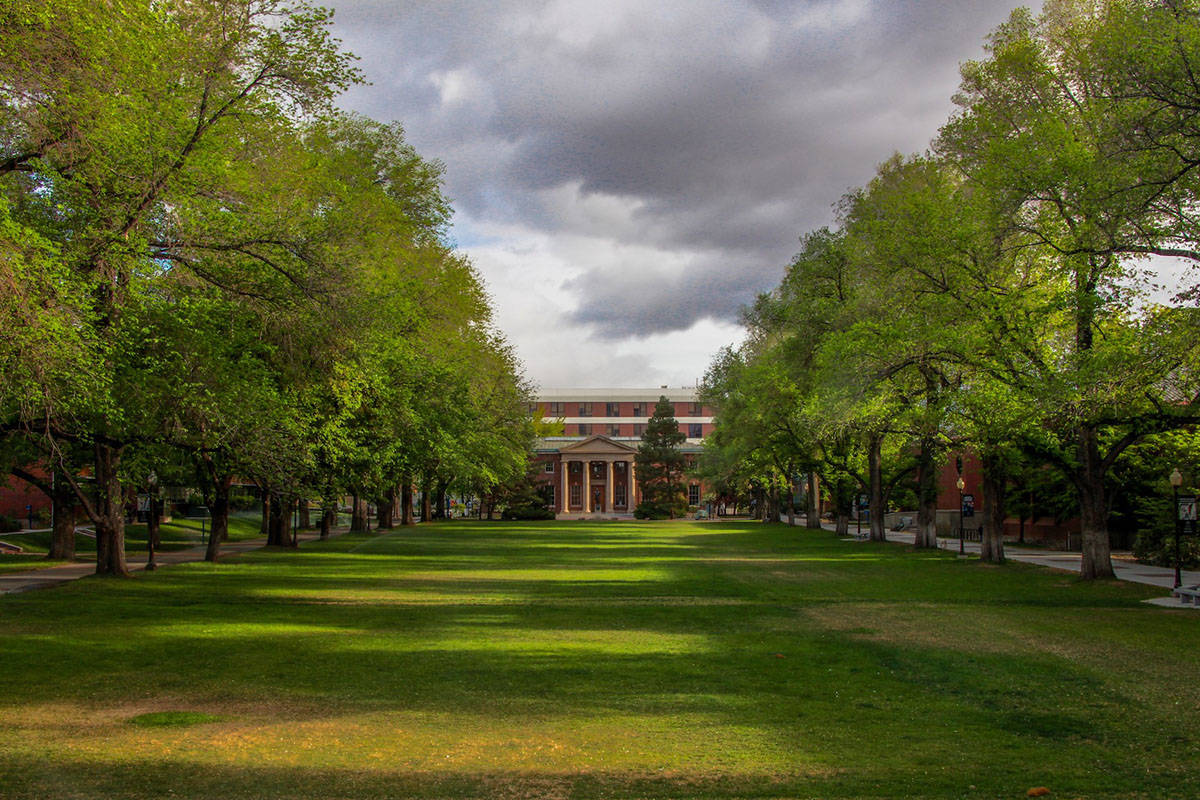UNR going to all-remote classes after Thanksgiving
University of Nevada, Reno President Brian Sandoval sent a university-wide message to students, faculty and staff, announcing additional coronavirus mitigation efforts concerning fall break and spring break.
“COVID-19 remains a significant challenge, not only for our institution but for our community, the state of Nevada and our country,” Sandoval said. “I write today to share our plan forward, which is essential in order to safeguard the health of everyone associated with our university.”
In the past few weeks, one in nine active positive cases in Washoe County were associated with the university community, and the 18-24 age range continues to be the highest range of new cases. Washoe County is one of only two counties flagged for elevated disease transmission in Nevada. As of Oct. 5, the COVID-19 case rate per 100,000 over the past 30 days in Washoe County is highest in the state.
“Clearly, we must continue to find ways to lessen these rates in the best interests of our university family and the broader community,” Sandoval said as the university announced several measures.
Effective Monday, Nov. 30, all university courses will be delivered remotely for the remainder of the semester. The provost’s office will provide additional information early next week to faculty regarding this change. Tutoring, advising and other academic and support services will still be available to all students. More information on these services will be forthcoming through the provost’s office.
Students living in residence halls are asked not to return to campus following Thanksgiving weekend unless they have a hardship or extenuating circumstances and must remain in the residence halls. Residential life will be communicating directly with students living in residence halls with specific details, including information on prorated refunds on room and board. Parking services will provide prorated parking refunds to students affected by these closures.
Knowing there could be more virus transmission following periods of travel or recreational gatherings, they are adjusting the spring schedule to begin one week later and eliminate the spring break week. Spring semester 2021 instruction is now scheduled to begin on Monday, Jan. 25. This measure should allow them to have a continuous spring semester with students living in residential communities. The provost’s office will provide a list of the important dates associated with this revised spring academic calendar.
Just as UNR is trying to reduce transmission risk for teaching faculty and students, it is also evaluating ways to accomplish the same goal for professional/administrative faculty and classified staff while maintaining critical research activities and other essential functions. Deans and unit directors will assist in tailoring on-campus operations during December and January, and more information will be distributed as that input is gathered.
“I believe the adjustments to increase COVID-19 health and safety are a good path forward to decrease COVID-19 transmission at the university,” Washoe County District Health Officer Kevin Dick said. “I fully support the measures and applaud President Sandoval for taking seriously the health and safety of students, faculty, other employees and our greater community.”
In a letter to students Sept. 14, UNR Executive Vice President and Provost Kevin Carman stated that the university will continue to offer courses through the modalities it is currently using for the fall 2020 semester through the end of the spring 2021 semester.
Specifically, courses with enrollment capacities of 35 or greater will be taught online, while courses with enrollment capacities of 34 or less will predominantly be taught using the alternative-HyFlex modality.
Along with Sandoval, the university’s Issues Management Team continues to consider contingencies.
“We are fortunate to have a group of extremely dedicated people who have been working around the clock to respond to the challenges posed by COVID-19,” Sandoval said. “We now have a looming cold and flu season and holiday travel in which many of our students could be potentially traveling back and forth between campus and their families’ homes. These are all variables that have the potential to cause further spread of the virus. We must continue to find ways to mitigate these risks so that you, our students, faculty and staff, can remain healthy.”
Sandoval said that these measures are designed to reduce the community’s risk of exposure to COVID-19 by limiting holiday travel and further reducing campus density over the final days of this semester.
“Losing spring break will be a disappointment to many,” Sandoval said. “But an uninterrupted spring semester, coming on the heels of our adjusted end to the fall semester, gives us our best chance to ‘Protect the Pack.’”
Earlier this week, the university announced its new “Protect the Pack – COVID-19” dashboard that will help the university community review and contextualize important information such as testing data, active cases and positivity rates. The dashboard numbers are updated on a weekly basis.
Sandoval also encourages the university community to help “trace” their own activity relative to the health of others and recommends everyone to download the state’s app, “COVID Trace.” This mobile app exchanges information via Bluetooth and is completely anonymous and protects your privacy. Once installed, the app will alert you if you have come into contact with someone who has tested positive for COVID-19 and will explain your next steps to deal with this information.

















